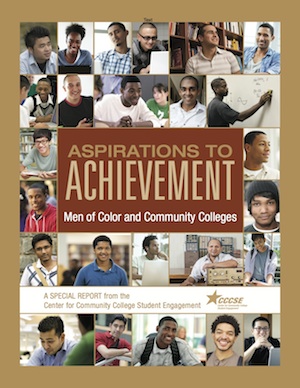 A new report produced by the Center for Community College Student Engagement at the University of Texas finds that Black men and other men of color are more engaged in the community college experience than White men. However, despite the greater engagement, men of color do worse academically than White men.
A new report produced by the Center for Community College Student Engagement at the University of Texas finds that Black men and other men of color are more engaged in the community college experience than White men. However, despite the greater engagement, men of color do worse academically than White men.
The study analyzed surveys of more than 453,000 students who responded to the Community College Survey of Student Engagement. The results showed that Black men were more engaged than Hispanic or White men in the community college experience meaning they were the least likely to skip classes, more likely to meet with faculty, frequently ask questions in class, and more likely to access available college resources such as tutoring services.
Kay McClenney, the director of the Center for Community College Student Engagement at the University of Texas, reports that “despite Black and Hispanic males reporting higher aspirations to earn a community college certificate or degree than their White peers, only 5 percent of those who attend community colleges earn certificates or degrees in three years, as opposed to 32 percent of White males.”
Dr. McClenney states that high levels of engagement generally correlate with academic success. But she notes that the data in this report “reveals that even higher levels of engagement of students of color can’t compensate for the effects of beginning college already well behind the starting gate in terms of academic readiness.”
The report, Aspirations to Achievement: Men of Color and Community Colleges, may be downloaded by clicking here.













Why are the same old tired studies being repeated with the same predictable outcome? As a black man, I am sick and tired of these worthless studies that improve nothing non other than allow someone to add another published report to their credentials.
I totally agree. Everyday I am reading a study or research on bla bla bla but then I look for the answer to the targeted problem, and there isn’t any mentioned. Ok Ok we get it there is a problem and research has shown this or that and this too, but where are the answers. It’s about time scholars, academia, provost, professors, etc stop just talking about the research, statistics, methodology, and typologies and come up with answers that will improve your findings!
We—need to insecure success for these young men in early elementary school. In other words we must grow success every step of the way.